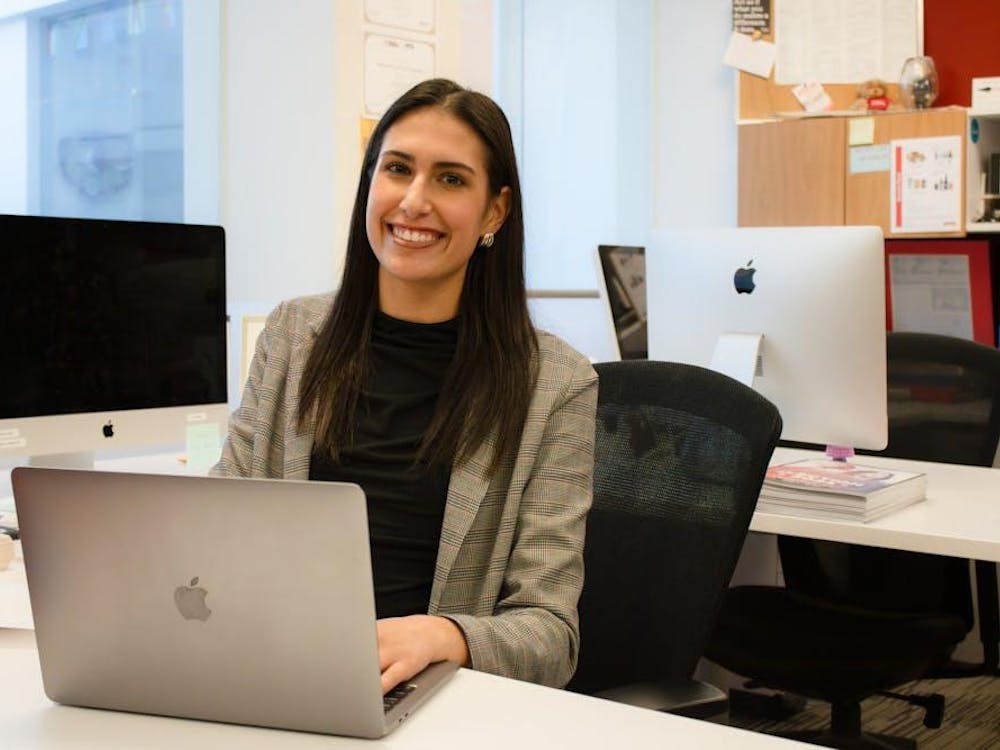Autism Speaks, the foremost autism related organization in the United States, has faced its fair share of controversy over the last decade. While the organization has made strides to improve its reputation, many members of the autistic community argue that Autism Speaks doesn't speak for them.
Two Miami University student organizations had differing responses to the controversy surrounding Autism Speaks.
Alpha Xi Delta, one of Miami’s 19 sororities, remains in partnership with Autism Speaks. Cat Singerman, Alpha Xi Delta’s president, said because the sorority’s national chapter is associated with the organization, there isn’t much that Miami’s chapter can do about the partnership.
Miami’s Autism Allies Club, which was formerly a local chapter of Autism Speaks, broke from the national advocacy group in 2019 to focus on other ways of supporting members of the Miami community with autism.
Autism Speaks, founded in 2005, donates millions of dollars toward autism research, sets up tax-exempt savings accounts and provides access to healthcare for individuals with autism. The organization has increased awareness through its Autism Awareness Month campaign and its annual Autism Speaks Walk, which has become the world’s largest autism fundraiser.
However, in a 2009 campaign video, Autism Speaks compared autism to cancer and frequently used the term “cure” when discussing additional services like therapy for families with children with autism. Although there are treatments such as therapy and interventions, autism is a neurological variation that cannot be cured, and it is not deadly.
In 2018, less than 2% of the organization’s budget went toward financial aid for families which is the bulk of the organization’s funding services.
There is also a lack of representation of people with autism on the board of directors. Prior to 2015, there were zero members on the board who had autism.
In 2016, Autism Speaks has erased the word “cure” from its mission statement, there is one member on the board of directors with autism and the organization changed its focus from treatment to advocacy.
Singerman wrote in an email to The Miami Student that she was aware of the controversy surrounding the organization. But she wrote that her “chapter members personally know individuals and families who have benefitted from Autism Speaks’ Family Service Programs.”
Singerman wrote that Alpha Xi Delta hopes to work with Autism Speaks in a way that’s unique to Miami.
“Alpha Xi Delta is dedicated to promoting understanding and acceptance of autism,” Singerman wrote. “We’re still new on campus, and we’re working on finding our own unique way of supporting that effort.”
Enjoy what you're reading?
Signup for our newsletter
Refounded in 2019, the sorority’s first annual philanthropy event was scheduled for last spring but was canceled due to COVID-19. This past fall, however, it hosted an art sale with proceeds benefiting Autism Speaks.
“Autism ‘awareness’ is no longer a priority for the autistic community,” Singerman wrote. “Promoting autism understanding and acceptance is the focus right now, and there are many organizations out there pursuing this goal. We are happy to be a part of that movement.”
Shae Cole Weiser, a senior speech pathology and audiology major, is the president of the Autism Allies Club at Miami. The club focuses on education, awareness and allyship for the autistic community at Miami and fundraises for the Butler County Department of Developmental Disabilities.
Prior to the fall semester of 2019, the club was a chapter of Autism Speaks, and all of its donations went to the organization. Cole Weiser said many autistic students on campus voiced their opinions to the club about the negative controversy behind the organization.
After doing some research, Cole Weiser said the club broke away from Autism Speaks and formed the Autism Allies Club.
Cole Weiser acknowledges that Autism Speaks is trying to get better by changing the words it uses and increasing representation, but the change is happening too slowly for many people.
“There are a lot of better organizations out there for sure,” Cole Weiser said. “There is one called the ASAN [Autistic Self Advocacy Network] which is an organization by autistic people for autistic people.”
Cole Weiser said she thinks it might have a negative impact on autistic students knowing that Alpha Xi Delta supports the organization, considering how many students voiced their concern when there was an Autism Speaks chapter at Miami.
She thinks that, in order for Autism Speaks to improve, it needs to begin with representation.
“To have those autistic voices in power giving autistic people the autonomy and the power they need within the organization will ignite a bigger change,” Cole Weiser said.
Stephanie Dawson, director of the Miller Center for Student Disability Services, agrees with Cole Weiser about the importance of representation.
Although she would not comment on Alpha Xi Delta’s relationship with Autism Speaks, Dawson discussed the heavy lack of representation for the autism community. She shared a common expression surrounding the autism community: “Nothing about us, without us.”
“The idea is that you’re actually going to have representation and members of that community at the table to inform,” Dawson said. “It is not only the responsibility of disabled people to address the issue of misrepresentation and underrepresentation, but we all have a collective responsibility to address the issue.”



